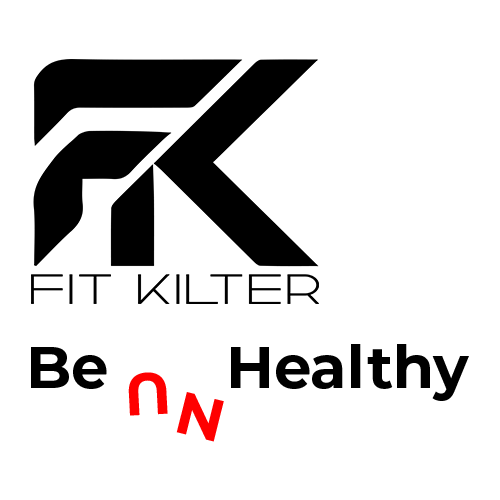With countless diet plans flooding the market, it can be overwhelming to navigate through the sea of options to find the one that suits your needs and goals. Each diet plan comes with its own set of promises and protocols, but it’s essential to understand the pros and cons of each approach before diving in. In this comprehensive blog, we’ll break down several popular diet plans, examining their potential benefits and drawbacks to help you make an informed decision about which approach is right for you.
Mediterranean Diet:
- The Mediterranean diet is based on the traditional eating patterns of countries bordering the Mediterranean Sea. It emphasizes whole, minimally processed foods such as fruits, vegetables, whole grains, legumes, nuts, seeds, olive oil, fish, and poultry, while limiting red meat and processed foods.
Pros:
- Rich in fruits, vegetables, and whole grains, providing essential vitamins, minerals, and antioxidants.
- Emphasizes healthy fats from sources such as olive oil, nuts, and fatty fish, which may help reduce the risk of heart disease and improve overall cardiovascular health.
- Flexible and adaptable to individual preferences and cultural traditions.
- Supported by research linking it to various health benefits, including reduced risk of chronic diseases such as heart disease, diabetes, and certain cancers.
Cons:
- May require significant changes in dietary habits, particularly for those accustomed to a Western diet high in processed foods and animal products.
- Can be more expensive than a typical Western diet due to the emphasis on fresh produce and quality ingredients.
- May require careful planning to ensure adequate nutrient intake, particularly for those following a vegetarian or vegan version of the diet.
Ketogenic Diet:
- The ketogenic diet is a high-fat, low-carbohydrate eating plan designed to induce a state of ketosis, where the body burns fat for fuel instead of carbohydrates. It typically involves consuming 70-80% of calories from fat, 5-10% from carbohydrates, and 10-20% from protein.
Pros:
- Rapid weight loss: The ketogenic diet has been shown to promote rapid weight loss, particularly in the short term, due to its ability to induce ketosis and burn fat for fuel.
- Improved blood sugar control: Some research suggests that the ketogenic diet may help improve blood sugar levels and insulin sensitivity, making it potentially beneficial for individuals with type 2 diabetes.
- Reduced appetite: The high-fat content of the ketogenic diet may help promote feelings of fullness and satiety, leading to reduced calorie intake and weight loss.
Cons:
- Nutrient deficiencies: The ketogenic diet restricts many food groups rich in essential nutrients, such as fruits, vegetables, whole grains, and legumes, which may increase the risk of nutrient deficiencies over time.
- Side effects: Some people may experience side effects such as fatigue, headache, constipation, and bad breath when first starting the ketogenic diet, known as the “keto flu.”
- Sustainability: The restrictive nature of the ketogenic diet can make it challenging to maintain in the long term, leading to potential weight regain once normal eating patterns resume.
Paleo Diet:
- The paleo diet, also known as the “caveman diet,” is based on the presumed dietary patterns of our hunter-gatherer ancestors. It focuses on whole, unprocessed foods such as lean meats, fish, fruits, vegetables, nuts, and seeds, while excluding grains, dairy, legumes, and processed foods.
Pros:
- Emphasis on whole, nutrient-dense foods: The paleo diet encourages the consumption of whole foods rich in essential nutrients, including vitamins, minerals, antioxidants, and protein.
- Potential weight loss: Some people may experience weight loss on the paleo diet due to its emphasis on whole foods and elimination of processed foods and added sugars.
- Reduced inflammation: The paleo diet eliminates many common allergens and inflammatory foods, which may help reduce inflammation and improve symptoms in individuals with autoimmune conditions or inflammatory diseases.
Cons:
- Restrictive: The paleo diet restricts several food groups, including grains, dairy, and legumes, which may make it challenging to meet nutrient needs and adhere to in the long term.
- Cost: The paleo diet can be more expensive than a typical Western diet due to the emphasis on high-quality, organic, and grass-fed meats, as well as fresh produce and nuts.
- Lack of scientific evidence: While the paleo diet is based on evolutionary principles, there is limited scientific research supporting its efficacy for long-term weight loss or improved health outcomes.
Vegan Diet:
- The vegan diet excludes all animal products, including meat, poultry, fish, dairy, eggs, and honey, and focuses on plant-based foods such as fruits, vegetables, whole grains, legumes, nuts, and seeds.
Pros:
- Health benefits: A well-planned vegan diet can be rich in vitamins, minerals, fiber, and antioxidants, and may help reduce the risk of chronic diseases such as heart disease, diabetes, and certain cancers.
- Environmental sustainability: The production of plant-based foods generally requires fewer natural resources and produces fewer greenhouse gas emissions compared to animal agriculture, making a vegan diet more environmentally sustainable.
- Ethical considerations: Many people choose a vegan diet for ethical reasons, such as animal welfare and environmental conservation.
Cons:
- Potential nutrient deficiencies: A poorly planned vegan diet may be deficient in certain nutrients such as vitamin B12, iron, calcium, zinc,













